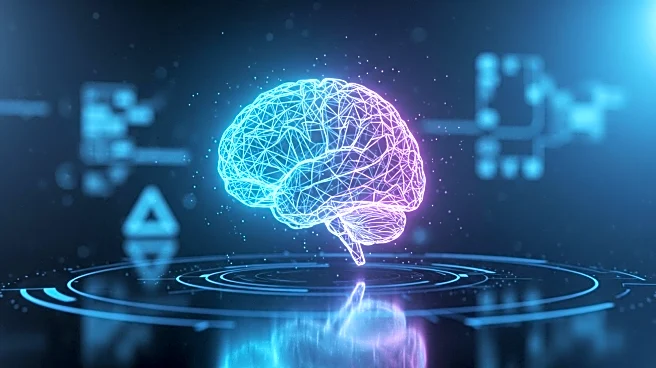What is the story about?
What's Happening?
OpenAI has released its latest AI model, GPT-5, which has been met with mixed reactions from the tech community. While the model shows improvements in tasks such as coding and research, it has not achieved the anticipated leap towards superintelligence. Industry leaders, including OpenAI CEO Sam Altman, have suggested that the model is a significant advancement, particularly in technical problem-solving. However, some experts believe the upgrade does not represent a dramatic shift in AI capabilities, prompting a reassessment of expectations for rapid AI progress.
Why It's Important?
The release of GPT-5 is significant as it influences the trajectory of AI development and its integration into various industries. Businesses using AI technology may benefit from improved efficiency and capabilities, potentially transforming workplace operations. However, the tempered expectations regarding AI's rapid advancement could impact investment strategies and regulatory approaches. The debate over AI's potential to achieve superintelligence also raises ethical and societal concerns about the future role of AI in human affairs.
What's Next?
OpenAI plans to continue refining GPT-5 based on user feedback, aiming to enhance its user-friendliness and efficiency. The company is also addressing the computational demands of the new model, seeking additional resources to support increased usage. As AI technology evolves, stakeholders, including policymakers and industry leaders, will likely engage in discussions about the implications of AI advancements and the need for regulatory frameworks to ensure responsible development.
Beyond the Headlines
The release of GPT-5 highlights ongoing debates about the ethical implications of AI development. Concerns about AI potentially surpassing human intelligence and gaining autonomy underscore the need for robust ethical guidelines and oversight. The model's performance also reflects broader challenges in achieving AI systems that can seamlessly integrate into human-centric environments without compromising safety or control.














